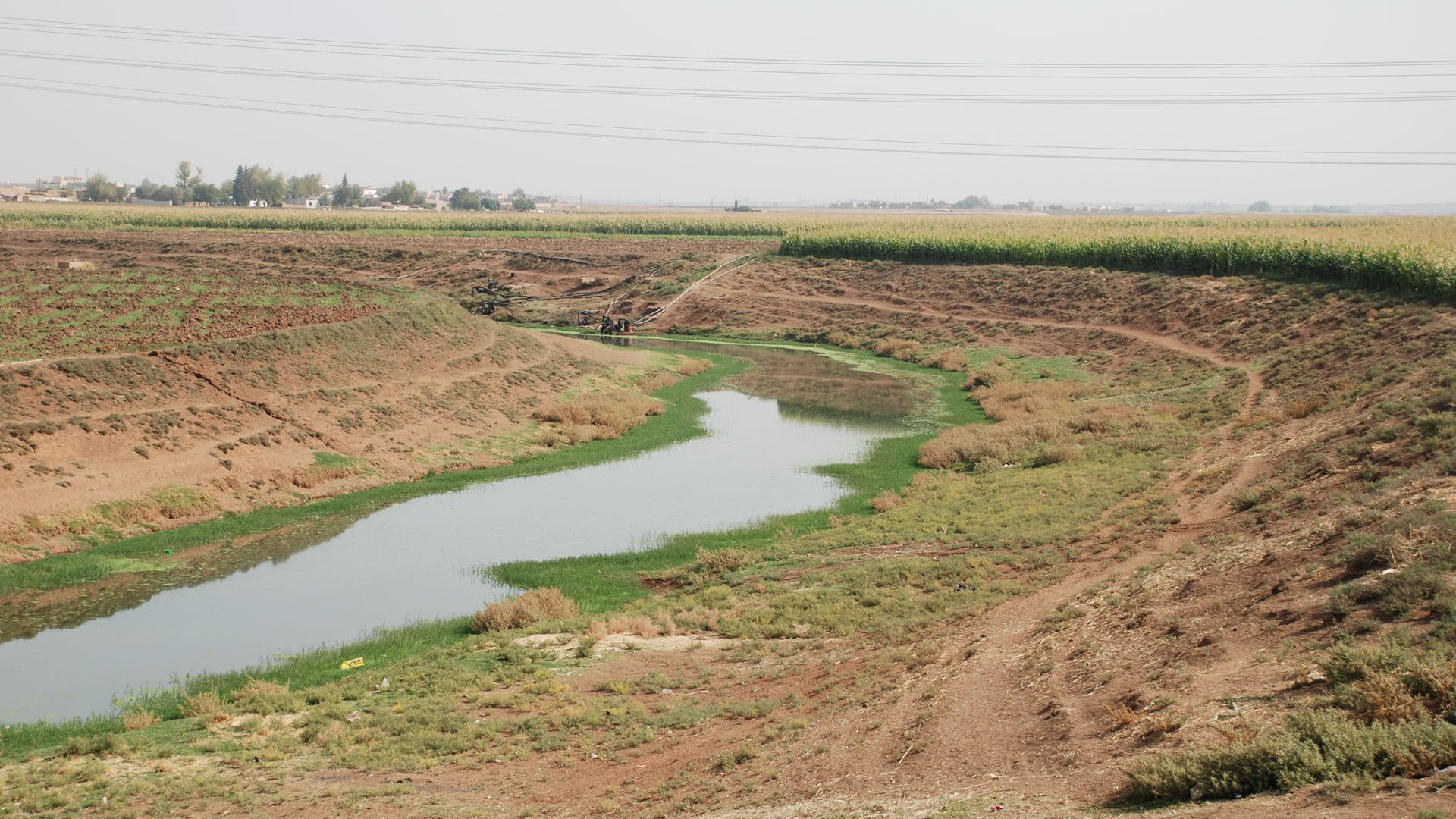Turkey’s interests and the goal of autonomy in northeastern Syria can be reconciled. And Russia has the chance to assume the responsibility it has aspired to for so long, argues Naseef Naeem.
The invasion of Turkish forces into north-eastern Syria has provoked protests and indignation in Europe. Nevertheless, European powers lack a strategy to deal with the situation. The political debate, which revolves primarily around sanctions against Turkey, is far from being a solution.
The conflict in Syria took on a new dimension when the first Turkish soldier marched in the direction of Syria. And we should not forget that the Operation ՙPeace Spring՚ east of the Euphrates is already the third major Turkish military operation on Syrian territory since 2011. The current situation cannot come as a surprise.
We are now witnessing a war between Syria and Turkey, though hardly anyone dares to spell it out like this. However, so far there have been no serious clashes between the Turkish army and the Syrian-Arab army, the official military of the Syrian state. On the Turkish side, there are Syrian paramilitaries, most of them Arabic, which Turkey calls the ՙSyrian National Army՚ and which consist of former fighters from the Free Syrian Army and other Islamist militias.
On the other hand, Syrian army units have joined forces with Kurdish militias. These units don’t engage in fights against the Turkish army, but against those Syrian militias that were sent as a vanguard by Turkey. If we trust the accuracy of the reports from the field, only Kurdish militiamen have been fighting directly against the regular Turkish army so far.
The Russians, whose armed forces have been present at the Turkish-Syrian border for several days, stay in the background to prevent a military confrontation between regular Syrian and Turkish forces. Previously, it was also the Russians who had mediated the pact between the army of the Syrian state and the Kurdish units.
Anyone wishing to find a political solution to the situation described above in northern Syria should first consider three facts concerning Turkey’s attitude:
- Turkey has not fundamentally questioned the role of the Russian army in northern Syria, which also applies to Russia’s role in the Syrian question as a whole.
- In principle, Turkey is not averse to the stationing of Syrian army units on the Turkish-Syrian border.
- Turkey has repeatedly stressed that it is taking action against the Kurdish People’s Protection Units (YPG) because they regard them as an extended arm of the PKK terrorist group. Thus, the Turkish classify the military operation in Syria as an anti-terror operation. Turkey certainly has reservations, but would not be categorically opposed to an autonomous region in northern Syria, provided that this region remained part of a Syrian state and was not dominated by an organization close to the PKK.
Scenarios for a possible solution with strong Russian participation and responsibility can be derived from these observations. This would in all probability be accepted by Turkey and, in view of the absence of Western forces, would probably also reflect the realistic possibilities.
The first step is to conclude a security agreement between Turkey and Syria – as happened with the 1998 Adana Agreement, which regulated bilateral relations against the background of the guerrilla war, fought by the PKK. Such an agreement must deal with the protection of the border and the control of border crossings. In addition, a control mechanism, a kind of monitoring system, could be established for which Russia would assume responsibility.
As soon as the Syrian army troops will have assumed the protection of the border and control of the border crossings under Russian oversight, negotiations could begin between the central government in Damascus and representatives of the Kurdish regional administration: These would deal with the form and extent of autonomy for the north-eastern region. Representatives of other ethnic groups and communities must be involved in the negotiations, as not only Kurds live in this part of the country.
These negotiations between the communities living in this region and the Syrian government must take place under international supervision and with European participation. Russia can also act as an intermediary and guarantor here, but cannot lead the negotiations just by itself. As has been shown time and again, building relations with civil society is not the strength of Russian foreign policy.
The Russians could maintain the influence of the Syrian state in northern Syria and at the same time limit the repercussions of Kurdish autonomy.
Many doubt that the government in Damascus would accept a decentralized or even federal solution in the region east of the Euphrates. Nevertheless, this appears to be a very likely scenario, as it provides Damascus with the only opportunity to maintain lasting influence over the northeast and at the same time prevent a Turkish occupation.
The government in Damascus had de facto lost this region in the northeast, even before the start of the Turkish military operation. Now it has the chance to regain some level of control. Determining the degree of autonomy would be an effective instrument to negotiate compromises that would allow Damascus access to oil and gas reserves and the establishment of new security concepts. On the other hand, it is up to the representatives of the local communities in this region, including the Kurds, to negotiate a deal that includes a high degree of autonomy and the right to a share of the oil revenues.
Russia should ensure that this deal is respected. And the Russians might not be averse to such a scenario, because it would allow them to preserve the influence of the Syrian state in northern Syria and limit the impact of Kurdish autonomy aspirations at the same time. Russia could therefore do its utmost to ensure that Turkey does not stand in the way of the whole thing. For their part, the Kurds would also be satisfied with such a solution, because the alternative would be a Turkish occupation, meaning, they would lose everything.
In addition, Turkey could involve Russia in a possible solution for the issue of Syrian refugees in Turkey. The Russians would then have to press Damascus to ensure that refugees are not settled somewhere along the Euphrates, but can return to their home regions and enjoy protection there. In this way, Turkey can also avoid the tensions on its southern border that would be expected in the event of an arbitrary resettlement policy. It would also open the possibility to obtain international financial and political support for these plans, provided that the Russians are prepared to safeguard the whole process.
Of course, such solutions are not entirely ideal for the West; and to present them may not yet be in line with how Europe sees itself acting in these matters. Nevertheless, the time may be ripe to treat Russia not only as the dominant force in the Syrian equation, but rather as a kind of mandate power that must ensure order in this part of the world. The Russians have aspired to this role, and now they must deliver. And they themselves would probably also be satisfied with this role and the West’s recognition of it.
Dr. Naseef Naeem is an expert in constitutional law, Head of Research at zenithCouncil and author of the book »Der Staat und seine Fundamente in den arabischen Republiken« (ՙThe State and its Foundations in the Arab Republics՚, published in German).




